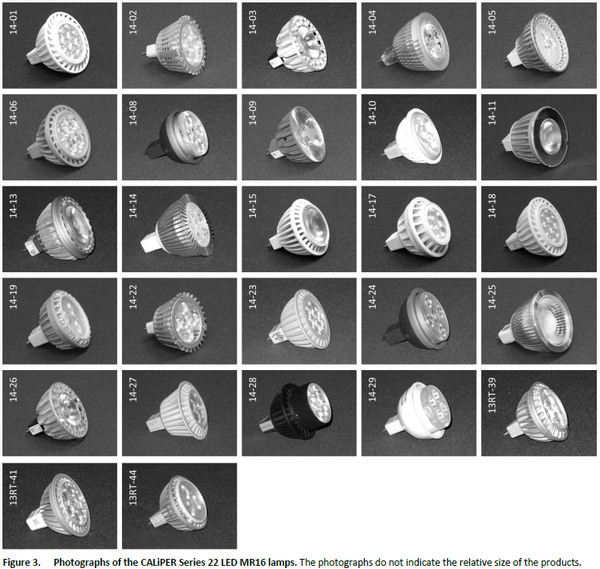The U.S. Department of Energy’s CALiPER program has released an Application Summary Report that focuses on the photometric performance of 27 LED MR16 lamps. Entitled Application Summary Report 22: LED MR16 Lamps, it describes initial performance based on light output, efficacy, distribution, color quality, electrical characteristics, and form factor, with comparisons to a selection of benchmark halogen MR16s and ENERGY STAR® qualification thresholds.
The Series 22 LED MR16 lamps demonstrated systemic inaccuracy in equivalency claims (comparisons to a specific wattage halogen MR16 lamp). Every lamp that made a claim produced fewer lumens and had lower center beam intensity than would be predicted (for a lamp having the same beam angle) using the ENERGY STAR center beam intensity tool.
 |
|
Source: DOE CALiPER Application Summary Report. |
Among other key takeaways:
-
LED MR16 lamps producing up to 600 lm are widely available, a considerable improvement over previous CALiPER testing.
-
All of the Series 22 LED products offer some efficacy advantage versus the halogen benchmarks, but the range in efficacy is substantial (38 to 90 lm/W).
-
A vast majority of the LED MR16 lamps had a medium distribution (i.e., beam angle between 20° and 30°), but five were measured at between 7° and 18°. Even narrower distributions (e.g., 4° beam angle), as well as a wider variety of options, would make LED MR16s attractive for more applications.
CALiPER plans to conduct additional testing on the Series 22 LED MR16 lamps to investigate performance attributes that are not captured by LM-79 testing. These results will be published in subsequent reports.
Download the full report.












